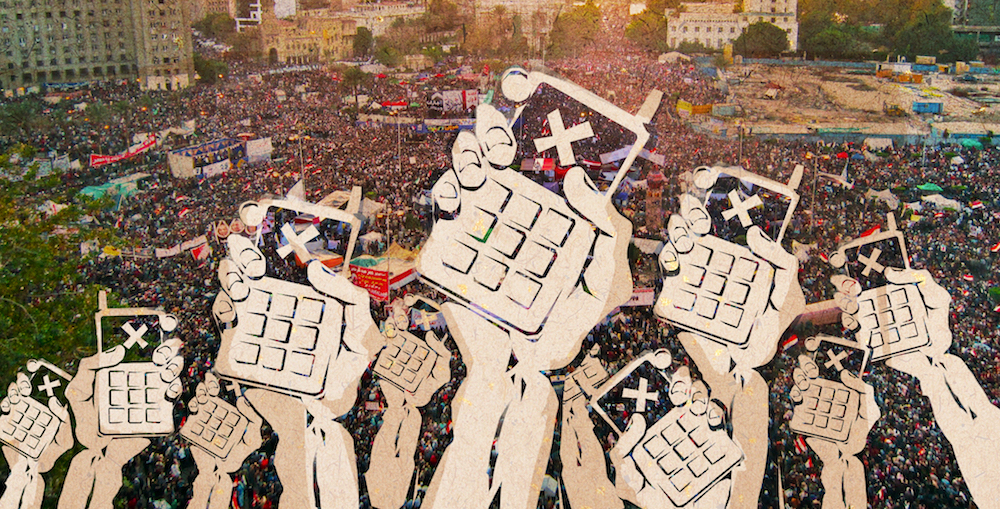On 9 April 2017, after deadly attacks on Christian churches, Egypt declared a state of emergency, which gave the authorities (the armed forces, the police, and the president) the direct power to censor and monitor all forms of communication on the internet. On 24 May 2017, an anonymous body within the Egyptian government blocked at least 20 sites, most of them online newspapers or sites with media content, with the exception of two sites.
Later on, the number of blocked websites continued to rise, including independent news websites that published articles critical of the Egyptian government, such as Mada Masr, Al Minassa, and the Daily News Egypt. Other banned sites include international news outlets such as the Arabic channel Al Jazeera and the Huffington Post Arabic. The ban also includes well-known Egyptian blogs whose authors had expressed concern, well before he took power, that Abdel Fattah al-Sisi was reconstructing the Mubarak regime.
Within three months, the ban expanded as the Egyptian authorities blocked websites providing content related to human rights and civil society, such as the Arabic Network for Human Rights Information, Reporters Without Borders, the Egyptian Commission for Human Rights and Freedoms, and the Journalists Against Torture Observatory. The ban extended to include the Human Rights Watch website on 7 September 2017, a day after the organization issued a report documenting the systematic use of torture in the country’s prisons.
The ban not only affected news and NGO sites, but also 261 VPN and proxy sites, as well as 17 other websites, on 29 August 2017. VPNs and proxies are often used to circumvent online censorship and secure web traffic. Among the blocked VPN sites are “TunnelBear,” “Cyberghost,” “Hotspot Shield,” and many more. In addition to these websites, authorities blocked Signal, an encrypted messaging application, last September.
The number of blocked sites has now reached more than 500, nearly a year after the beginning of the blocking operations. The Egyptian government continues to expand the state of emergency, which opens the door to the government’s control of the media on the grounds that it is protecting Egypt from terrorist attacks.
Presidential elections to take place amid severe online censorship and a crackdown on civil society
The website blocking is part of a wider crackdown against civil society in the country, as many human rights defenders have been banned from traveling and NGOs have had their assets frozen. The number of journalists imprisoned during Sisi’s term in office has reached 19, the largest since the arrests made in September 1981 under the rule of former president Anwar Sadat.
The electoral period in Egypt has also been marked by a number of controversies, with the withdrawal from the race of several candidates challenging President Sisi, including of former prime minister Ahmed Shafiq, who was deported from the United Arab Emirates after declaring his intention to run and held incommunicado for 24 hours. In January, the exit of another candidate, retired General Sami Anan, sparked an uproar in the media after he was arrested and denied permission to run on charges of running for election without prior approval from the military, forging documents stating that he had left the military and “inciting against the armed forces.”
Since then, we have seen the launch of campaigns that ridicule and criticize the problems with the electoral process on social networks using the hashtag #مينفعش_تترشح_عشان (#It’s useless to be a candidate because). These campaigns highlight the phenomenon that has become common — namely, the withdrawal of candidates, one after the other, to leave the arena free for Sisi.
A violation of the right to freedom of expression and the Egyptian Constitution
Access to information and freedom of expression are fundamental rights, and they are especially critical during election periods.
The website bans and censorship not only violate freedom of expression but also run contrary to the Egyptian Constitution, such as Article 57, which states that “the State undertakes to protect the right of citizens to use public means of communication in all its forms. It shall not ban, block or deprive citizens of such rights in an abusive manner and this shall be regulated by the law.”
Article 65 of the Egyptian Constitution stipulates that “Freedom of thought and opinion is guaranteed, and everyone has the right to express his opinion by speech, in writing, through photography, or other means of expression and publication.”
According to Article 19 of the Universal Declaration of Human Rights, “everyone has the right to freedom of opinion and expression. This right includes freedom to hold opinions without interference and to seek, receive and impart information and ideas by any media and regardless of frontiers.”
Egypt signed the International Covenant on Civil and Political Rights (ICCPR) on 4 August 1967 and ratified it on 14 January 1982, making it obliged to follow the guidance of the United Nations Commission on Human Rights, and therefore to consider the blocking of more than 500 websites a means of repression, media control, and assault on freedom of expression.
